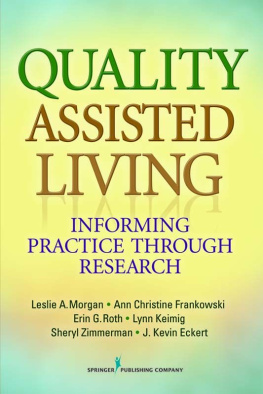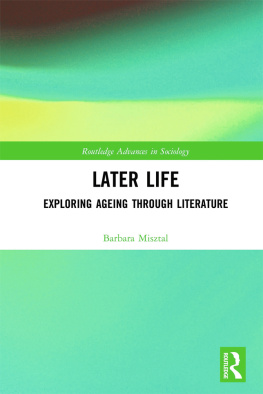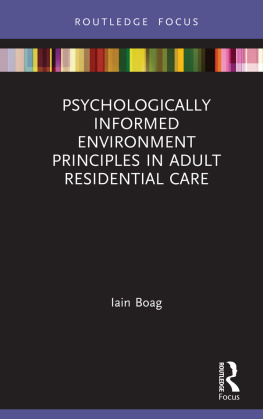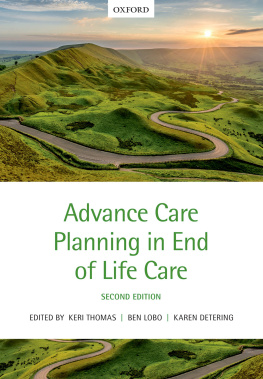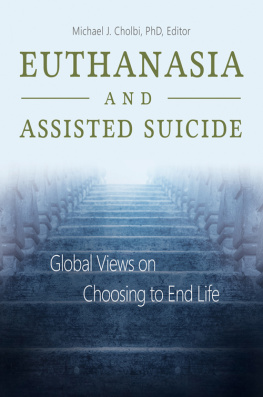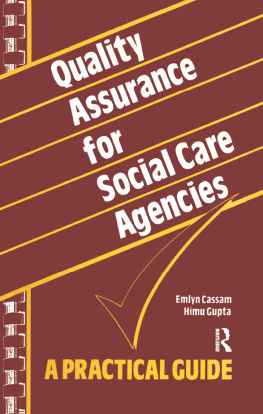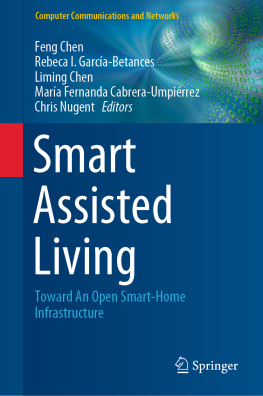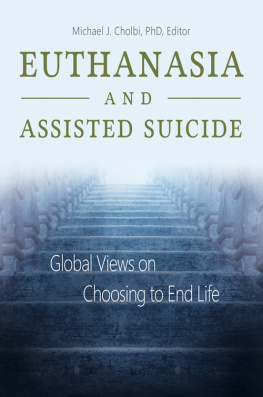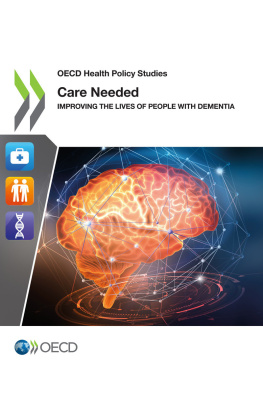Quality Assisted Living
Leslie A. Morgan, PhD, is Professor of Sociology and Co-director of the Doctoral Program in Gerontology at University of Maryland, Baltimore County (UMBC). An affiliate of the Center for Aging Studies, she has authored or co-authored five books and over 30 journal articles on topics relating to family, senior housing, economics, and gender. She is a fellow of the Gerontological Society of America and of the Association for Gerontology in Higher Education.
Ann Christine Frankowski, PhD, a cultural anthropologist, is Associate Research Scientist in the Department of Sociology and Anthropology, University of Maryland, Baltimore County (UMBC), conducting ethno-graphic studies at its Center for Aging Studies. She is co-author of Inside Assisted Living and articles on sociocultural aspects of senior housing.
Erin G. Roth, MA, is a Senior Research Analyst and Ethnographer with the Center for Aging Studies at University of Maryland, Baltimore County (UMBC). Trained as a folklorist, she worked in the public sector prior to joining the Center in 2004. She is a co-author of Inside Assisted Living and has contributed articles to the Journal of Aging Studies, the Journal of American Folklore, and the Journal of Folklore Research.
Lynn Keimig, MHA, PhD candidate, has worked as Project Coordinator on two studies related to assisted living and currently is part of the research team for two studies, focusing on social stigma in senior housing and generativity in later life, in the Center for Aging Studies at University of Maryland, Baltimore County (UMBC). Her own research focuses on family structure and advance care planning.
Sheryl Zimmerman, PhD, is Kenan Distinguished Professor and Director of Aging Research, School of Social Work and Co-director, Program on Aging, Disability, and Long-Term Care, Cecil G. Sheps Center for Health Services Research, University of North Carolina at Chapel Hill. Dr. Zimmerman has been a consulting social worker in nursing homes and assisted living facilities. She has led widely disseminated research on quality of care and quality of life, involving thousands of long-term care residents and the family and staff who provide their care.
J. Kevin Eckert, PhD, is Professor and Chair of the Department of Sociology and Anthropology at University of Maryland, Baltimore County (UMBC). An affiliate of the Center for Aging Studies, he has been a lead investigator on several studies and published widely on topics relating to the experience of older adults living in age-restricted housing and care settings. He is a fellow of the Gerontological Society of America and of the Association for Gerontology in Higher Education.
Quality Assisted Living
Informing Practice Through Research
Leslie A. Morgan, PhD
Ann Christine Frankowski, PhD
Erin G. Roth, MA
Lynn Keimig, MHA
Sheryl Zimmerman, PhD
J. Kevin Eckert, PhD

Copyright 2012 Springer Publishing Company, LLC
All rights reserved.
.
Springer Publishing Company, LLC
11 West 42nd Street
New York, NY 10036
www.springerpub.com
Acquisitions Editor: Sheri W. Sussman
Senior Production Editor: Diane Davis
Composition: NewGen Imaging
ISBN: 978-0-8261-3034-1
E-book ISBN: 9780826130358
11 12 13 14 15 16 5 4 3 2 1
The author and the publisher of this Work have made every effort to use sources believed to be reliable to provide information that is accurate and compatible with the standards generally accepted at the time of publication. Because medical science is continually advancing, our knowledge base continues to expand. Therefore, as new information becomes available, changes in procedures become necessary. We recommend that the reader always consult current research and specific institutional policies before performing any clinical procedure. The author and publisher shall not be liable for any special, consequential, or exemplary damages resulting, in whole or in part, from the readers use of, or reliance on, the information contained in this book. The publisher has no responsibility for the persistence or accuracy of URLs for external or third-party Internet Web sites referred to in this publication and does not guarantee that any content on such Web sites is, or will remain, accurate or appropriate.
Library of Congress Cataloging-in-Publication Data
Quality assisted living : informing practice through research / Leslie A. Morgan... [et al.].
p. cm.
Includes bibliographical references and index.
ISBN 978-0-8261-3034-1ISBN 978-0-8261-3035-8 (ebook)
1. Old age homes. 2. Nursing homes. 3. Congregate housing. 4. Older peopleCare.
I. Morgan, Leslie A.
HV1454.Q35 2011
362.61dc22 2011015449
Special discounts on bulk quantities of our books are available to corporations, professional associations, pharmaceutical companies, health care organizations, and other qualifying groups.
If you are interested in a custom book, including chapters from more than one of our titles, we can provide that service as well.
For details, please contact:
Special Sales Department, Springer Publishing Company, LLC
11 West 42nd Street, 15th Floor, New York, NY 100368002
Phone: 877-687-7476 or 212-431-4370; Fax: 212-941-7842
Email:
Printed in the United States of America by Gasch Printing
Preface
Concern regarding quality in assisted living (AL) is well established. All 50 states regulate the care settings they label as assisted living in order to minimize risks to safety and guarantee a basic set of rights and services to residents (Mollica, Sims-Kastelein, & OKeefe, 2007). Provider organizations, such as Leading Age and the Assisted Living Federation of America, and advocacy groups like the Center for Excellence in Assisted Living spend considerable time focusing on how to create, improve, and sustain quality in their settings, both in serving the goals of their businesses and as providers of housing and care for residents. With some regularity, journalists uncover stories of shockingly poor care, neglect, abuse, or unnecessary death in AL; similar stories have, over decades, resulted in todays high level of regulation and oversight of nursing homes (Kane, 2010). Although regulations provide an acceptable basic level of housing and care while working to avoid the most egregious types of abuse or neglect, the question of reaching a fuller and more responsive level of quality remains unaddressed.
One key factor in the puzzle of understanding quality is determining what matters most and to whom it matters: the regulators, operators and managers, direct care providers, or residents and family members. Whereas managers and owners must be responsive to the goals of regulators or the external marketplace, people living in AL bring experiences and expectations for their housing and care, which shape the dimensions that matter most to quality. The study that serves as the primary basis of this book focuses specifically on the problem of gaining a deeper understanding of the meaning of quality from the perspective of people living and working in AL. As researchers, we have found that our views of what constitutes quality arent always shared by those living or working there. We found that a one-size-fits-all idea about what AL settings offer or about what residents or their kin are seeking when in search of services to be equally unrealistic. Details about the research process are included in the.
Based in our research teams prior work in AL, we saw many family and staff members, leaders and managers, and residents who expressed concerns aboutor praised aspects oftheir life or work in AL. We also learned from experiences in a variety of AL settings that quality may be difficult to discern, hidden in the mundane daily routines of life, such as meals, activities, room cleaning, and interactions with others in the setting. Our observations also showed that our views about what made for a good quality setting werent always mirrored by those to whom we spoke, suggesting that quality is, perhaps, more complicated than the simple researcher checklists or customer satisfaction surveys that have been employed to gauge quality to date.
Next page
